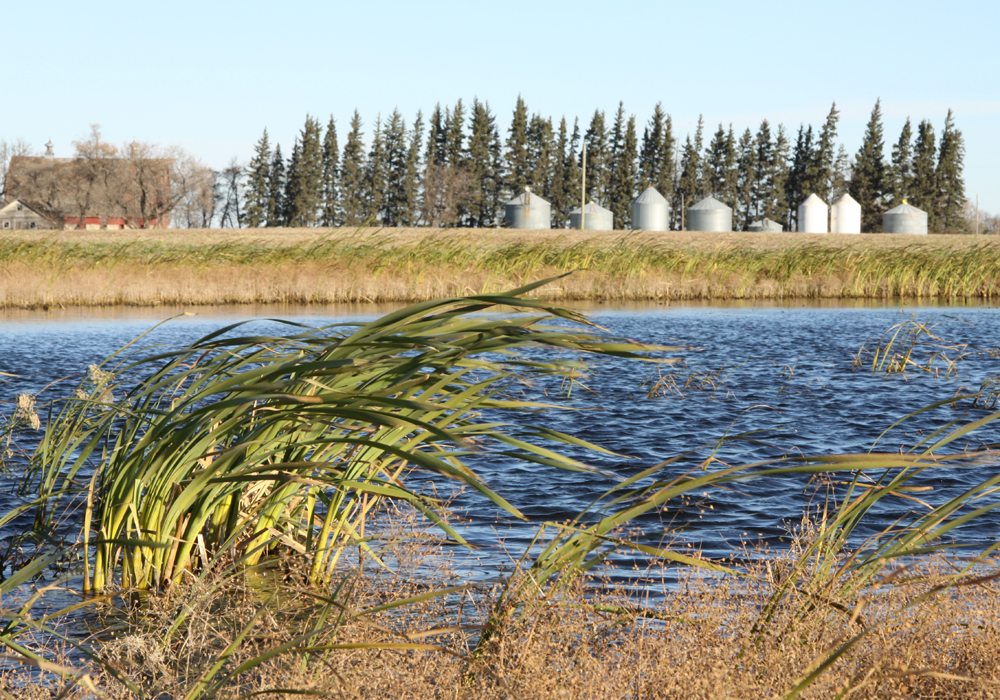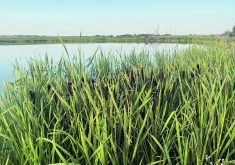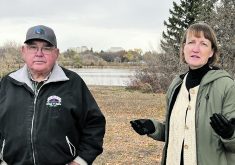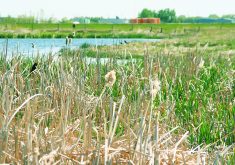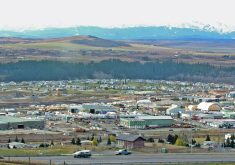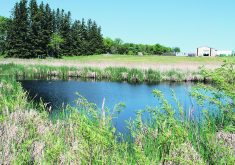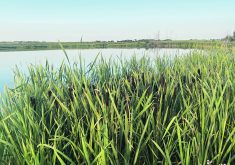Manitoba introduced legislation November 30 that could fundamentally change how water and wetlands are managed in the province.
The Bill, known as the Sustainable Watersheds
Act, will increase penalties for illegal drainage, establish nutrient run-off targets to keep track of water quality and provide financial incentives to farmers who adopt practices that restore wetlands, retain water and better manage riparian areas.
“Manitoba’s farmers have always been excellent stewards of the land and this legislation would give them the unique opportunity to participate in environmental solutions to issues facing our province,” said Manitoba’s agriculture minister, Ralph Eichler, in a statement.
Read Also

Huge Black Sea flax crop to provide stiff competition
Russia and Kazakhstan harvested huge flax crops and will be providing stiff competition in China and the EU.
The proposed legislation makes it clear that Manitoba intends to move forward with a form of the Alternative Land Use Services (ALUS) model, where landowners are compensated for ecological services that preserve things like water quality or natural habitats.
Since taking office in 2016 the Progressive Conservative government has talked about implementing an “ALUS type” program.
Municipalities and communities in Ontario, Saskatchewan and Alberta have established ALUS projects, but Prince Edward Island is the only jurisdiction in Canada to have a province-wide ALUS program.
Paying farmers to preserve wetlands is a shift from Manitoba’s previous government, which tried to pass a no net loss policy for wetlands.
Under that approach a farmer who wanted to drain a slough would have to prove the drainage offered significant social and economic benefits.
Then replace the lost habitat with an equivalent wetland.
That bill didn’t become law in Manitoba because it failed to make it through the legislature prior to the provincial election in April 2016.
Dan Mazier, Keystone Agricultural Producers (KAP) president, endorsed the province’s new plan.
“Farmers are uniquely positioned to do this… we can provide flood mitigation, carbon sequestration, nutrient capture and habitat protection. These are benefits for all Manitobans,” he said. “I am pleased this act would also include revised drainage regulations that would reduce red tape for minor maintenance projects, but increase focus on larger initiatives.”
The Sustainable Watersheds Act may reduce red tape for small projects, but the new rules will not compromise wetlands, the province said.
“(There are) new requirements that would ensure drainage projects do not result in loss of certain classes of wetlands.”
Besides Mazier and KAP, Ducks Unlimited Canada also offered support for the proposed legislation.
Scott Stephens, DUC Canada director of operations for the Prairies, said the Bill provides a balance between regulations and incentives to preserve wetlands.
The Act would increase protection for seasonal, semi-permanent and permanent wetlands.
“We see (that) as very positive,” he said.
“(But) there are still plenty of details to work out in the regulations.”
Contact robert.arnason@producer.com




